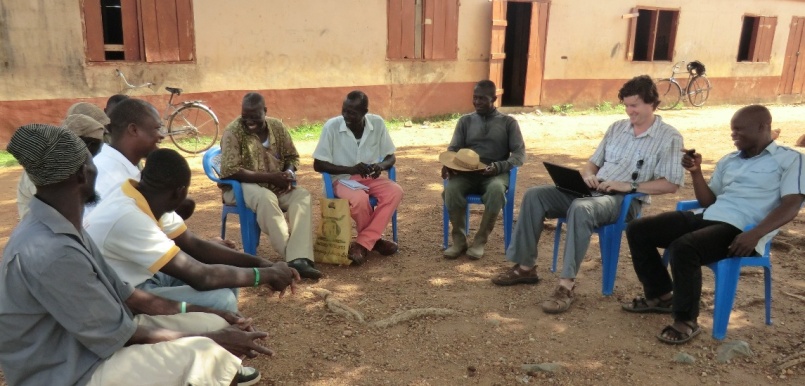Our current approach to food security and climate change
We work with communities to improve their reliable access to food and their resilience against climate change. While we provide support, all projects are driven from a grassroots level. The communities themselves own the project and project outcomes.
Project themes include:
- exploring opportunities to raise awareness on climate change, its impacts and climate change adaptation;
- promoting sustainable agriculture management (by promoting sustainable soil and water management, nutrient cycling and the planting of resilient and diverse species);
- promoting the security of wild biological resources (eg trees harvested for timber or fuel) as well as agricultural resources;
- promoting appropriate, affordable and clean energy for marginalised communities to power their own development.
The design, monitoring and evaluation approach
Design
We ensure that project designs:
- reflect the partner communities’ own aspirations, capacities and contexts, as well as lessons from previous project evaluations;
- are economically feasible and advantageous for communities, and preferably built on technologies that others outside the project communities can spontaneously adopt;
- enhance children’s and women’s social and economic participation;
- take advantage of global funding and community income-generating opportunities, such as earning carbon sequestration funding for community emission reduction and reforestation projects;
- nurture capacity among our international World Vision colleagues so that they can initiate similar projects themselves.
Monitoring and evaluation
Baseline study, ongoing monitoring and end-of-project evaluation
We conduct a baseline study at the beginning of each project. We continue to monitor the project throughout its lifetime. At the end of each project, we conduct an evaluation to learn from community members about their experiences of the project. To assess project impact, we then compare the baseline studies and end-of-project evaluations.
For selected pioneering projects, we conduct additional research during the project to gain insight into different areas of focus. For instance, in additon to evaluating a project’s economic impact we might also evaluate its social impact. We then integrate this feedback into project assessments and future project designs.

